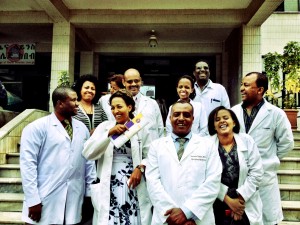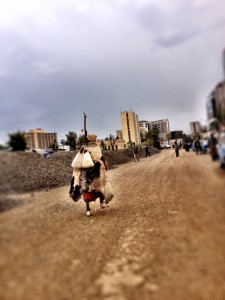Addiction to prescription opiates is almost always a symptom of deeper suffering
DR. JAMES MASKALYK
Special to The Globe and Mail
http://fw.to/CJ4QJhO
“And so, just as before, only by occupation in the day, by morphine at night, could she stifle the fearful thought of what would be if he ceased to love her.” – Anna Karenina, Tolstoy.
According to the International Narcotics Control Board, Canada uses more prescription opiates per capita than anyone else save our closest neighbour, by a wide, almost unbelievable, margin. Australia – a country similar to ours in size and population – uses half as much at No. 9 in the world. While heroin overdoses have remained stable, prescription-related opiate deaths have bloomed onto coroner’s tables, more than doubling since 2000, when OxyContin first hit prescription pads. According to a drug-use survey of Ontario youth, high-school students are more likely to use OxyContin than smoke cigarettes. Public-health officials in both Canada and the United States are calling it a crisis, one set to worsen with new approval by the U.S. Food and Drug Administration of a long-acting painkiller that promises to be as addictive as any before it.
On my last shift at the hospital, two men arrived to the ER nearly dead from prescription opiates. How much longer must Canadians turn to these drugs before we understand what they’re turning from?
As a curious young doctor new to the big city, I asked addicts what they chased. I’ve since stopped. There are too many, and new answers became rare. Alcoholics and crack smokers were often too lost to say. Opiate users knew. A man claiming pain in a long-healed elbow admitted to such a huge dependency, he was afraid the withdrawal would kill him. He answered with disdain.
“You know why. They treat pain. But not just physical pain. It gets it all. You return to the womb.” Rough edges disappear, and with them, the drive for another breath.
While Rolling Stone eulogizes another star lost to opiates, less famous Canadians die daily. Some are cursed with unrelenting physical pain that prevents them from feeling free. Others taste freedom in the drug itself, a temporary escape from a deeper suffering, and, looking for deliverance, put another thing in its way. My colleagues and I are anxious to help both groups, but want to cause no harm. As such, each day, people leave the ER angry, their pain unaddressed, others with enough pills to drowse into a deep, and sometimes final, dream.
The truth is, a five-minute encounter with a doctor and a dose of opiates is rarely an abiding solution to a person’s affliction. A lack of honesty about this has led to a lack of options, and combined with the lure of a medicalized, anodyne experience, has created a fine system of dependency. In a strange evolutionary turn, our bodies have natural receptors for pieces of poppy. The compounds are very similar to our body’s painkillers that sift into our blood when our bones are broken and so precious that, when in abundance, our cells make more receptors to grab each piece. When the surplus drops, we ache. What once was enough no longer satisfies.
Each day in the ER, I see people claiming backaches. Abdominal pain only relieved with morphine, headaches that won’t go away, all investigated many times with no sign of disease. I rarely give the drugs they request, except for new injuries. They are dangerous in the large amounts that people need if they take them regularly. Wherever their pain came from, a pinched nerve in the neck or childhood wounds, it will take more than one prescription to get past it.
Drug manufacturers know it’s better business to create dependency than to offer remedy, and there are walk-in clinics in every small town. Give people a dose of fentanyl for a broken elbow, and pills to go home with, and a percentage will eat the pills even after the pain fades, seek more, until eating them is not enough, the delivery to hungry receptors too slow, so they scrape off the coating, crush them between spoons, mix the dust with water and put it straight into their veins. What hurt are we walking around with that sees us seeking relief in such numbers?
Chronic physical pain is a horror, poorly understood and difficult to treat. So too is addiction, and what leads to it. It is marginalized in our society, treated as a weakness, or even worse, a disease from which the patient can never be healed. To enter rehabilitation, we ask them to be drug-free, already better. If they succeed and abstain, we tell them they will never be outside its shadow, forever sick.
This is wrong. Addiction is not a disease, but a symptom of a deeper trouble from which a person can be freed, but never by something as simple as what can be written down on a piece of paper, neither methadone, nor three days in detox. These will never address the deeper distress of a traumatic past that needs to be shed, a difficult present that needs to be transformed, a fear of the future replaced with possibilities.
Both patients and doctors need to understand this ache as one that opiates will only make worse.
James Maskalyk is an emergency physician at St. Michael’s Hospital in Toronto. His second book, Life on the Ground Floor, will be published in 2015 by Doubleday.

